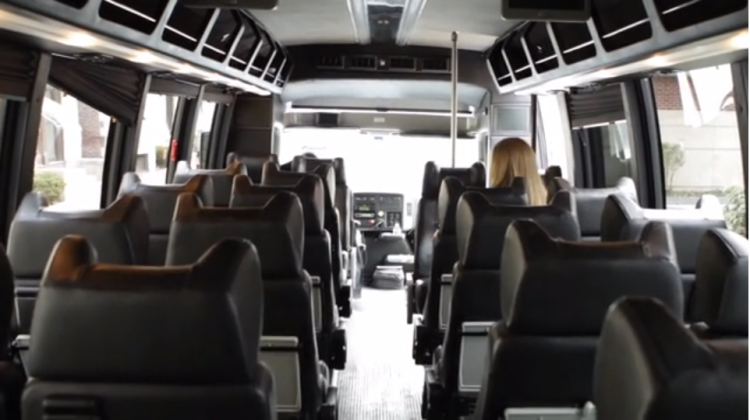Bridj is like a shared ride service, but it’s with 15 people, and it’s on a bus. And there’s some flexibility to the route, depending on traffic and the needs of passengers.
Customers simply input their origin, destination, and time of departure, and Bridj (pronounced “bridge”) tells them when and where to hop on one of its mini-buses.
While some routes do end up getting used repeatedly, they’re not fixed like traditional bus lines. Bridj creates whatever routes that demand dictates. Ultimately, Bridj’s goal is to cut down on commute time, and offer rides that fit its customers’ needs.
Bridj has been testing its service in Boston, and it’s been able to pick passengers up in under 10 minutes. It’s been filling about 70 percent of its 15-person mini-buses, on average, chief executive Matthew George said.
Dynamic routing is a hot space. Lyft, Uber, and SideCar all recently launched carpooling services, which use similar technology (routing multiple passengers and figuring out optimal combinations of passengers and routes).
Bridj also announced that it’s hired Gabe Klein as its chief operating officer. Klein was previously the head of transportation for the cities of Chicago and Washington, D.C., making him a key hire as the company works to take on urban transportation.
Now, Boston-based Bridj has raised a fresh $4 million to continue working on its slight twist on this idea. The funding comes from Boston-based investors, including Atlas Ventures, ZipCar investor Jill Preotle, NextView Ventures, Suffolk Equity, and Freshtracks Capital.


